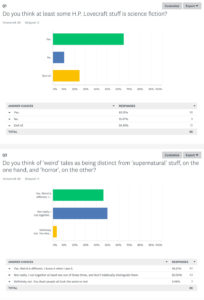The firing of Kevin Williamson has led, predictably, to outrage from other conservatives, and in particular from anti-Trumpers like Bill Kristol and Erick Erickson. I can’t help thinking that much of their outrage is rooted in fear. Conservative intellectuals are in a very awkward historical position.
It is an unfortunate, but fairly obvious truth that most intellectuals, both on the left or right, don’t have particularly original ideas. Go to the Aspen Ideas Festival, or TED, or any of their ilk and you won’t find much that is genuinely surprising or exciting. Instead, you will find a lot of people whose stock-in-trade is not so much innovation as influence.
This used to be true in some quite specific ways of conservative intellectuals. The conservative movement perceived the need for intellectuals, both to hold their own fractious coalition together through ‘fusionism’ and the like, and to justify their goals to liberals, who dominated the space of serious policy discussions, and could possibly stop them. Liberal policy types, for their part, needed to understand what was happening among conservatives, and perhaps hoped to influence it a little. The result was that conservative intellectuals were in a highly advantageous structural position, serving as the primary link between two different spheres, which didn’t otherwise come much into contact. As network sociology 101 will tell you, this allowed them a fair amount of arbitrage and enough slack that e.g. people like Jonah Goldberg were treated as serious thinkers.
Now, however, the game is up, thanks to an unfortunate concatenation of events. Conservative intellectuals defected en masse from Trump, thinking that it was a fairly cheap gesture of independence, but Trump got elected. Not only did this damage these intellectuals’ personal ties with the new administration and the conservative movement, but it opened up the way for a conservatism that basically didn’t give a fuck about policy ideas and the need to seem ‘serious’ any more. The result is that conservative intellectuals don’t have all that much influence over conservatism any more.
The problem is that without such influence over conservatives, these intellectuals’ capital with liberals and the left is rapidly diminishing too. If conservative intellectuals don’t have much of an audience within conservatism itself, why should people on the opposite side listen to them any more? Their actual ideas are … mostly not that strong. Some of them are good writers (David Frum, for example), but good writing only goes so far. The only plausible case for paying attention to conservative-intellectuals-qua-conservative-intellectuals, is that perhaps the pendulum will swing back after Trump, and the old regime be restored. That might happen, but you wouldn’t want to betting serious money on it.
If this analysis is right (and it obviously may not be) Stephens, Williamson (up until this afternoon) and the others are running on fumes. The adherents of old-style centrist liberalism might still have some nostalgia for the old days when men were real men, women were real women, and associate editors of the New Republic were real associate editors of the New Republic. But that’s a poorish substitute for actual influence and an actual audience, especially when the actual liberals and leftwingers that are the audience for publications like the Atlantic don’t want anything to do with these people. The very brightest will probably be OK – but it’ll be a cold enough future for the others.



